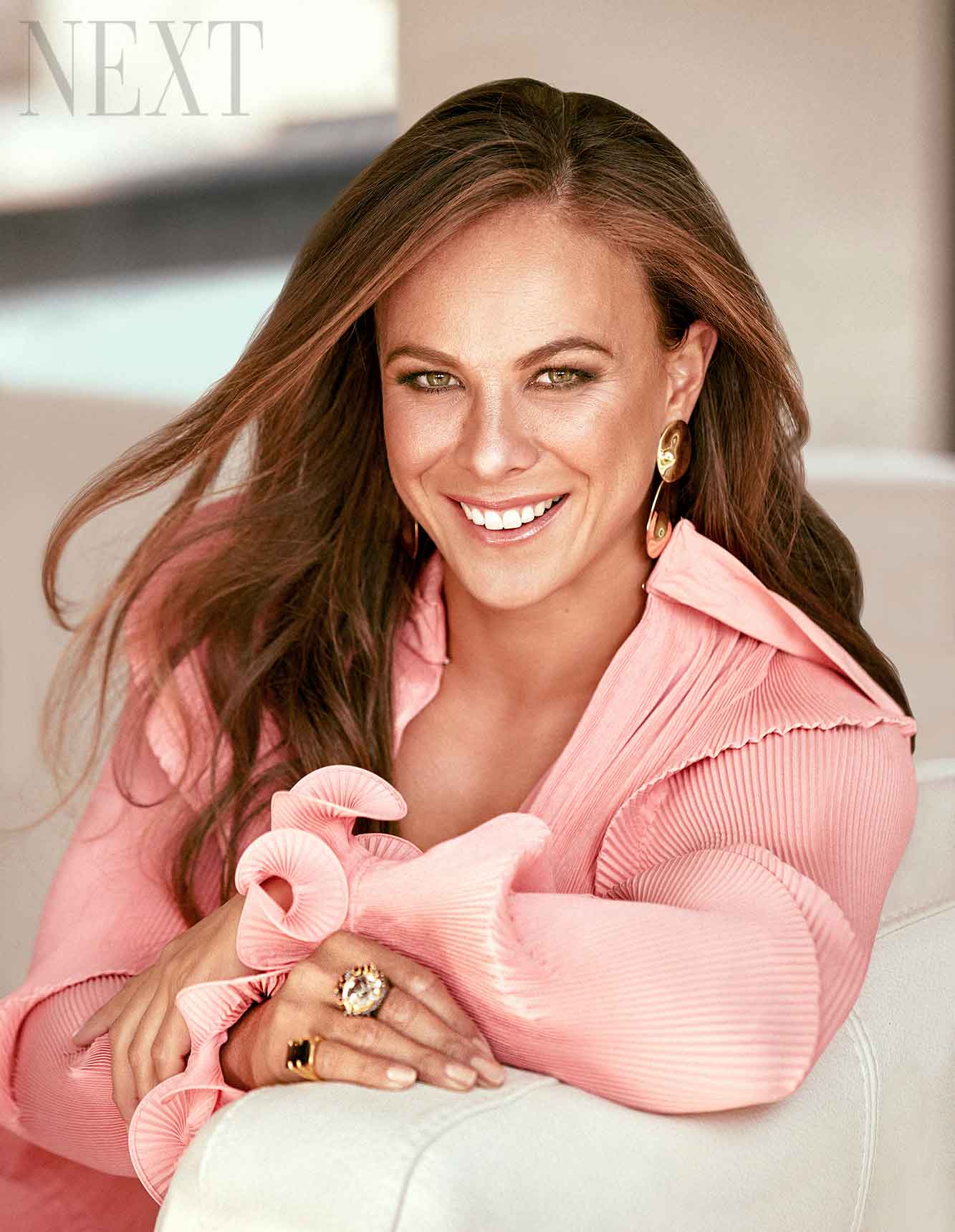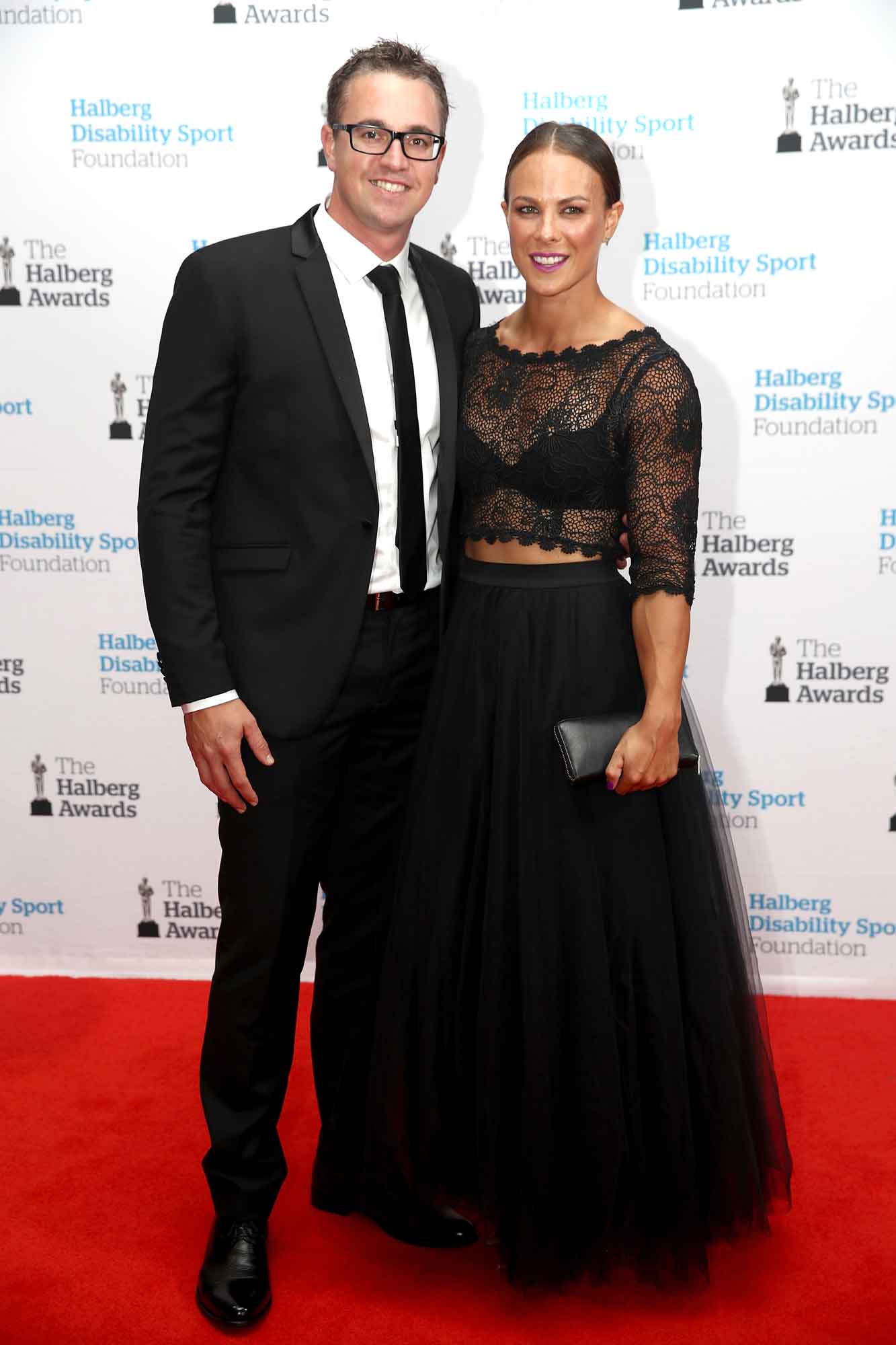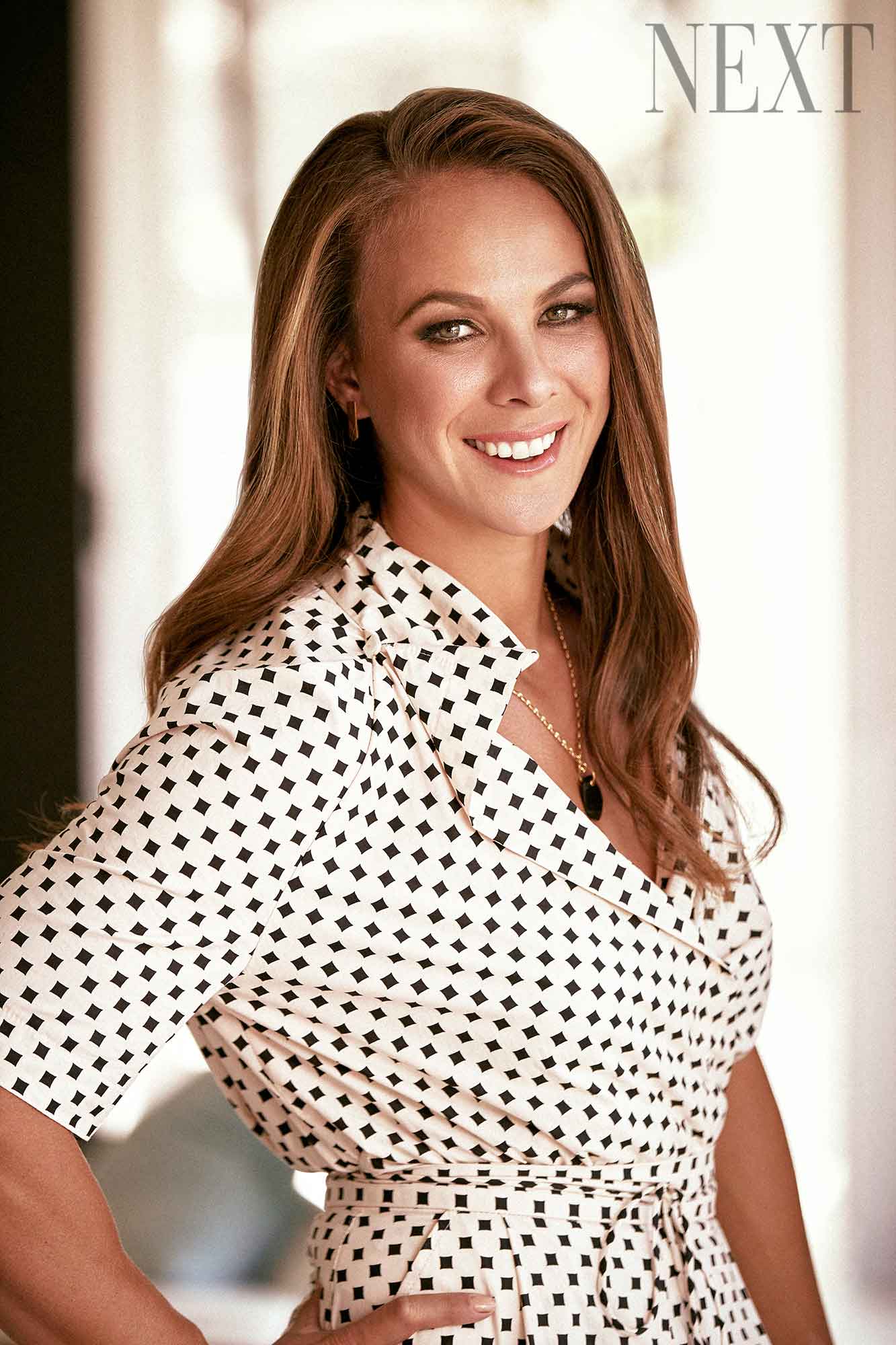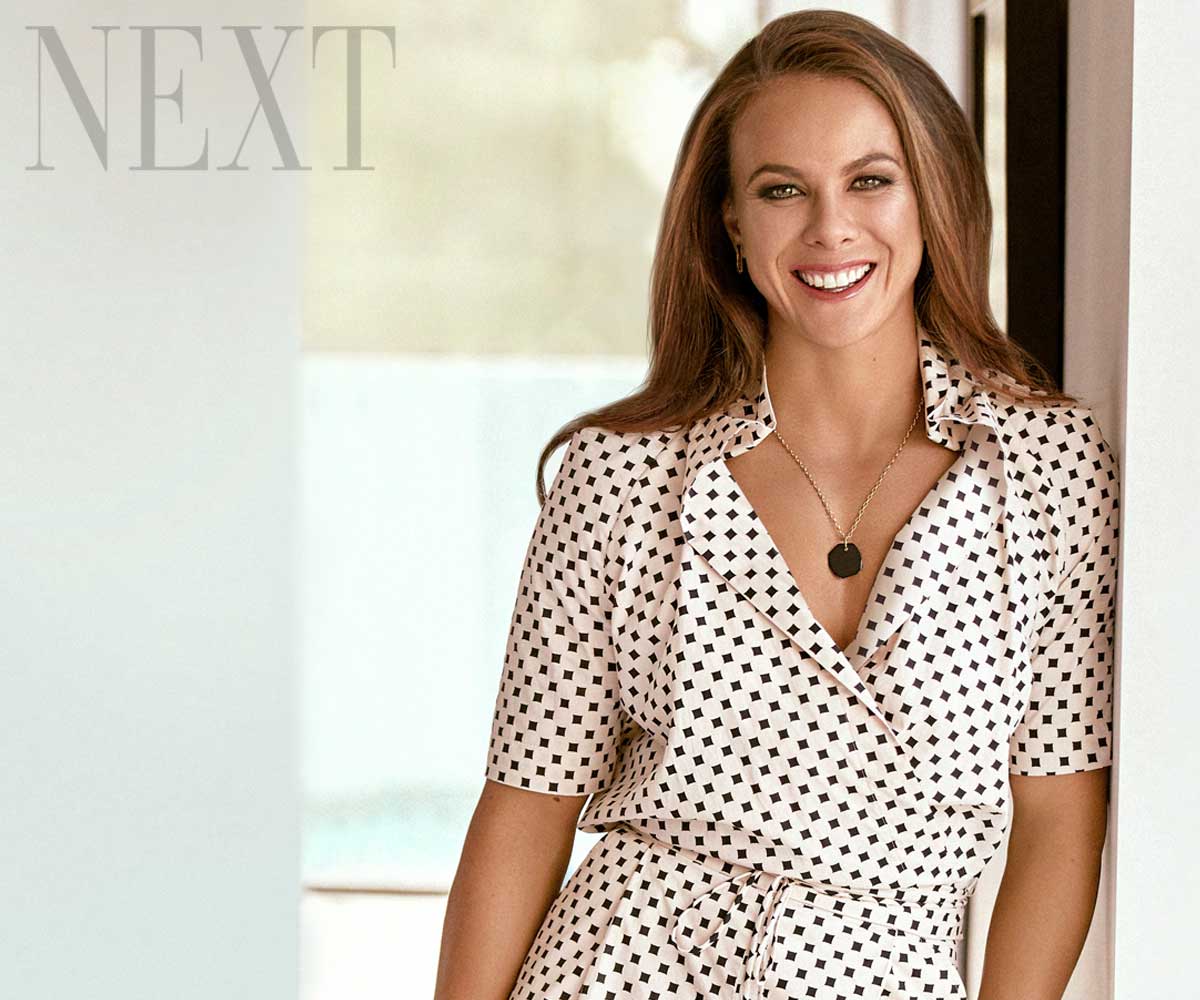Pretty much everything in Lisa Carrington‘s life right now is targeted at making her fitter, faster and stronger. When you are a champion kayaker, on track to becoming one of our most decorated Olympians, there is no energy to spare for things that don’t further your goals. Not when the difference between victory and loss can be mere fractions of seconds. Not when it’s your job to win a race.
We are used to seeing footage of Lisa powering her kayak across the finish line and punching the air in triumph – it’s why she received her third Halberg for Sportswoman of the Year in February. What we rarely glimpse is the discipline it takes to get her there. The hours of repetitive physical training, the regular physiotherapy to prevent her body breaking down, the work to keep her mentally focused, the commitments to the sponsors who fund her, the attention to a healthy diet, the constant need for recovery time. Lisa describes it as a puzzle; if any single piece is missing she won’t get the full picture.
“Sport is all about right here, right now,” says Lisa, whose most recent focus was the Canoe Sprint World Cup in Poland in May.
“You can make one little change and it will affect your whole performance. So when I’m training I only do things that are good for me. I feel like I don’t have time to waste.”
An exercise in discipline
Lisa’s typical day begins at 6am when she heads out for a paddling session on Lake Pupuke near her home on Auckland’s North Shore. She’ll be back in her kayak later in the afternoon and in between there is either a stint in the gym, an appointment with her physiotherapist or a hard-core Pilates workout.
Balancing some sort of personal life with that level of commitment isn’t easy, but at 29, Lisa has learned it is important to try. She counts herself very lucky in her long-time partner Michael Buck, who she describes as “a bit of a saint, really”.
“He works in a corporate job so we’re obviously living quite different lives, but he was an athlete to start with, so he gets it from that perspective,” says Lisa. “He’s probably one of a kind.
He’s understanding of the fact that I put sport first in most situations. I don’t know if I could do it if I was in his shoes and dealing with me!”
It helps that Michael is a sports fanatic, and loves having the opportunity to attend the events she is competing in, including the latest world champs in Portugal where she won three silvers and a gold. “We’re pretty fortunate to be able to share those experiences. And he’s crucial to my success. For me to be able to do what I do, he’s contributed to that hugely.”
Lisa tries not to bring any issues she might be having around sport back home with her at the end of the day.
“Life isn’t all kayaking,” she says.
“Yes, it’s my job and everything I do contributes to that performance but I’m also trying to be a normal person as well. It’s almost like you need to create different experiences to draw you out of the kayaking, things I wouldn’t normally do that remove me from my everyday job. I like fishing, walking, exploring, surfing. I also really enjoy lying around, recovering and getting energy, just watching Netflix.”

Keeping a balance
Being an elite athlete can be limiting. When she is working towards a competition Lisa has to turn down invitations and miss out on evenings with friends.
“But it’s just prioritising and having a plan in place so you can do the things that are important for you, and are good for you too.”
She is quite a homebody at heart, and loves cooking and baking. Alongside an ambassadorship role with Southern Cross Health Society, a sponsorship with NZ Beef and Lamb means there is always something for her and Michael to put on the barbecue and they will often have friends over to share a meal.
This is definitely a nesting stage of life and renovating their house on Auckland’s North Shore is an ongoing project for the couple.
“We’ve had our place a few years now and taken our time. We’ve done the kitchen and the bathroom, and now we’re doing the outdoors.”
Inevitably Lisa has been away competing, missing out on the nitty-gritty of it, and Michael has ended up shouldering a lot of the work. She suspects that might be a good thing.
“I’m a little bit – no a lot – impatient and, never having done a renovation before, I thought things happened really fast,” she laughs.

The area where she has most enjoyed contributing has been sprucing up the outdoors.
“I love being in the garden, planting and doing bits and pieces, it’s fun. I probably don’t have the endurance right now to look after anything over a year, like a vegetable garden, but I hope when I do finish I’ll have the energy to get into that.”
Lisa’s conversation is peppered with references to when she “finishes” and planning for life after sport is clearly occupying her mind. Right now she is at the top of her game and her sights are set on the Tokyo Olympics in 2020. After that there is no firm strategy yet.
“I’m not really sure what I want to do, whether I keep going after Tokyo,” she admits. “I could probably carry on until my mid to late thirties if I wanted. There was one paddler who kept going until their early 40s, but that’s a long time.”
The dilemma Lisa faces is one familiar to many women. She hopes to start a family at some stage but the question is when?
“It almost seems like if you were to have kids it would stop your sport, so it’s not easy,” she admits. “It would be amazing to have them but when is the time? It will change a few things and I guess change is hard to cope with.”
Maybe, baby…
She has been inspired to see female paddlers overseas who have come back to the sport in their early thirties after having kids. But is also encouraged by those that have carved out different careers with having a family.
“I’ve got a lot of friends with kids and it’s amazing to see how they do it. Everyone is different.”
It is difficult to imagine where someone like Lisa will put all that drive, ambition and competitive energy, once she doesn’t have sport to channel it into.
“Maybe it’s so intense that you just wear yourself out,” she reflects. “Perhaps you can’t be at such a high pace forever and slowing down is healthier. But I’m not there yet, so I don’t know what it’s going to feel like when I finish.”
While her focus remains on being an elite competitor, Lisa is chipping away at accumulating – skills and knowledge that will carry her through to the future.
“For me, sport is really a great vehicle for personal growth,” she explains. “We get a lot of support – psychological, physical, things around balancing life. I’ll be looking for an opportunity to use the skills I’ve developed when I do move on.”
She is halfway through studying extramurally for a post-graduate diploma in psychology, and hopes to find herself eventually in some sort of teaching or mentoring role, helping other people be the best they can be.
No time to celebrate
Finishing sport will also, she hopes, give her the opportunity to look back and really appreciate what she has achieved. At the moment Lisa doesn’t even have all those medals she has won out on display.
“I’m pretty bad, I put them in a drawer,” she admits, ruefully. “My mum found one in the pocket of my uniform after the world championships. But yes, the medals are cool and I think I’ll appreciate them more when I’m not doing it any more. It’s a huge flaw but it’s quite hard to celebrate when you do achieve because it’s always about trying to do more and become better. We do our best to try and enjoy the moment but we probably don’t do it justice. Maybe 20 years on there’s a bit more pride and you can share it with your family, hopefully by then your children and grandchildren.”
A lot of the work Lisa does with her physiotherapist now is in a bid to future-proof her body, so she can continue being fit well beyond her retirement from full-time sport. She has always been active – growing up in the Bay of Plenty township of Ohope netball was a passion as well as surf lifesaving and having two older brothers honed her competitive edge. The muscular physique she has developed as a result of all those years of training often draws attention and is something Lisa continues to feel self-conscious about.
“People comment all the time. It’s as if we as a society haven’t got used to strong women or people being different from the norm,” she frowns.
“I shouldn’t care what people think. And I’m okay with being stronger, being different… it’s just the attention on my appearance.”
Those muscles aren’t there for show, they are part of a finely tuned engine that powers a boat over the water and if she is going to score her third Olympic gold in Tokyo, then Lisa has to make sure she continues to get fitter, faster and stronger. Too many late nights, a glass or two of wine, too much of the wrong kinds of food, then her performance always suffers.
“I guess at the end of the day we’re working in such small margins, every little bit counts,” says Lisa. “Physical health is important but also mental. A lot of physical injuries can happen because you’re unhappy. It’s hugely linked. If you have an optimistic outlook on life and you’re enjoying it, then you’re less likely to get injured or ill.”

What’s important
Even catching a cold can be a significant setback for the athlete.
“When we train hard we lower the immune system so that’s why you need lots of rest and you’ve got to be careful with hygiene when you’re around people who are sick, especially in winter,” explains Lisa.
“It’s about building resilience by making good decisions about what you eat and when you go to bed.”
Heading back home to Ohope is always a treat for Lisa, boosting her health and restoring her mood.
“I miss the sun, the beach, the ease of getting places, my friends and family that are down there,” she admits. “But I also love Auckland and it’s busyness and going out to really nice restaurants and cafés. There’s a lot to enjoy here.”
Much more to achieve
Decent breaks from training are also important. Following the world championships, she took a week-long holiday in Portugal, then gave herself three more weeks of rest at home.
“Sports people expend a lot of energy so we’re tired a lot,” she explains. “When I’m not tired, my outlook on life is a little bit different and I can be more carefree. So I make the most of it.”
Ask Lisa where she wants to be in 10 years’ time and she looks thoughtful. The age of 39 seems a long way down the track and there is a lot she wants to achieve before then.
“Ten years time? I guess by then you’d probably hope you had a few kids,” she says, smiling.
“I couldn’t tell you exactly where I’ll be, but I hope I’m stable in my life, that I will have kept progressing from this point and I’m doing something I love.”
Lisa Carrington’s top tips for Being Well
As Southern Cross Health Society’s BeingWell Ambassador, Lisa is supporting the organisation’s work to give New Zealand employees assurance about their wellbeing. Working with Southern Cross, Lisa has these wellbeing tips for NEXT readers
Think Well
Be where your feet are. Be present with what is going on for you now. Try not to focus on the past or worry about the future.
Eat Well
Enjoy feeling great when you eat a healthy meal. Think of colour with your meals – the more colour, the more nutrients.
Sleep Well
Make a conscious decision to acknowledge your worries and thoughts and set them aside at bed time.
Move Well
Reframe exercise in your mind – see it as a fun activity rather than a task. Team up with friends to work towards a target or an event like a fun run.


